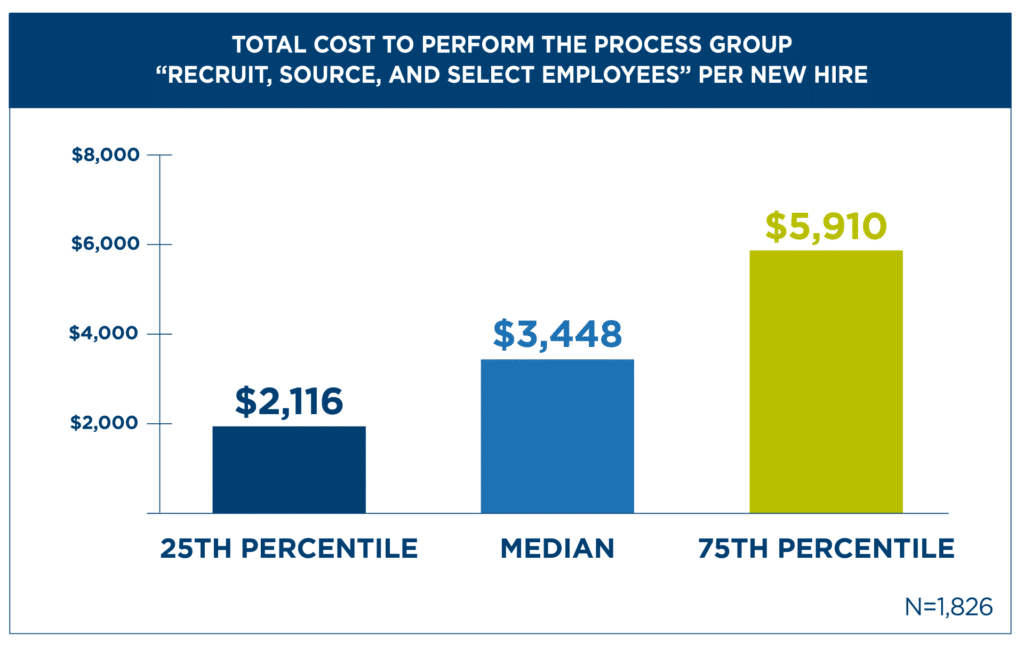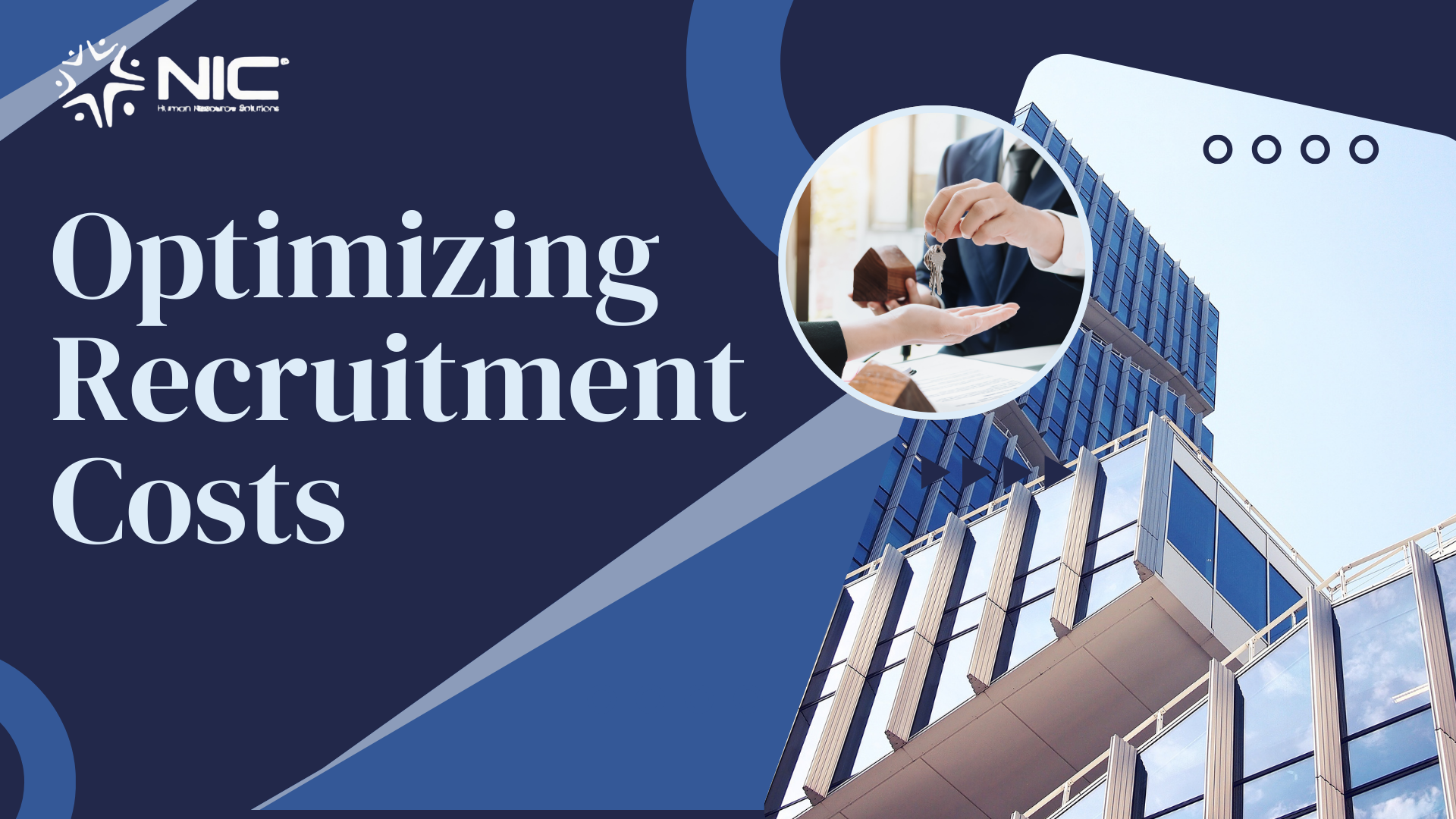3 Cost-Per-Hire Conversations HR Needs to Have with Leaders
22/10/2024
When the economy slows down, many business leaders view recruitment as an easy area to cut recruitment costs. If hiring demand is lower, why not reduce the budget? However, HR professionals understand that cutting recruitment costs without a clear strategy can lead to bigger problems. Recruitment isn’t just about filling roles; it’s about securing the right talent that drives business success.
So, how can HR balance the need to reduce costs while ensuring recruitment efforts still deliver value? Here’s why strategic thinking around recruitment costs is essential—and how HR can guide leadership toward making smart, long-term decisions.

Breaking Down the Real Recruitment Costs
One of the most widely used recruitment metrics is cost-per-hire, which includes expenses such as job postings, recruiter salaries, and the technology that supports candidate tracking. On average, companies spend around $3,500 per hire, but this figure can vary widely depending on the industry and role. For example, recruiting a skilled data scientist will naturally cost more than hiring an entry-level customer service representative.
While cutting recruitment budgets may seem like a quick win for short-term savings, it can create long-term challenges. If businesses don’t fully understand the factors influencing cost-per-hire, they may end up dealing with high turnover rates, extended hiring timelines, or poor-quality hires, all of which could result in greater expenses down the line. For companies engaged in outsourced recruitment services, tracking cost-per-hire is crucial to ensuring a balance between efficiency and quality in the hiring process.

The Importance of Quality, Not Just Recruitment Costs
While cost-per-hire is an important metric, focusing exclusively on cutting costs can lead to problems in other key areas—particularly the quality of hires. Imagine cutting costs only to hire candidates who aren’t the right fit, leading to higher turnover rates or decreased performance. In recruitment, it’s not about spending less—it’s about spending wisely.
HR teams must help business leaders see beyond the price tag. It’s vital to consider quality-of-hire metrics such as new hire performance, retention rates, and the satisfaction of both candidates and hiring managers. This is where staffing solutions and payroll outsourcing services in Vietnam can come in, providing cost-effective methods for companies to maintain high standards while managing recruitment expenses.

Sustaining Competitive Advantage in the Talent Market Recruitment Costs
When companies cut recruitment budgets, they may achieve short-term savings but lose their competitive edge in the talent market. The ability to attract top talent doesn’t happen overnight—it requires building a robust talent pipeline through ongoing engagement, networking, and nurturing relationships with potential candidates.
This is particularly important in bulk hiring services, where having a well-maintained pipeline is crucial to meet high-volume hiring demands efficiently.
Recruiters play a critical role in understanding business needs and anticipating future hiring demands. Losing recruitment talent and dismantling recruitment infrastructure can significantly delay hiring efforts when the market picks up again.
Maintaining strong recruitment services—even in slower times—ensures that your company is well-positioned to stay competitive and ready to scale quickly when needed.

Long-Term Efficiency vs. Short-Term Savings Recruitment Costs
Constantly cutting recruitment budgets can result in higher costs over time. Each time recruitment teams are reduced and then rebuilt, companies face severance payments, retraining expenses, and lost productivity. Maintaining a core recruitment team during slower periods allows businesses to innovate and improve their hiring processes, which can lead to long-term efficiency gains.
Investing in new recruitment technologies—such as AI-driven candidate screening or automated interview scheduling—may require upfront costs, but the long-term savings can be substantial. Cutting budgets without considering these future savings opportunities can lead to missed chances for improvement.
For example, mass recruitment services can benefit from automation and streamlined processes, allowing businesses to handle high-volume recruitment without sacrificing quality or efficiency.

The Candidate Experience Starts Before Day One Recruitment Costs
In today’s competitive talent market, candidate experience plays a pivotal role in attracting the best talent. It’s not just about the job offer—it’s about every interaction a candidate has with your company, from the first visit to your career page to the final interview. Reducing recruitment budgets may lead to slower response times, impersonal communication, and a negative perception of your employer brand.
Investing in the candidate experience pays off with better hires and improved retention rates. Today’s applicants expect personalized, quick communication, often supported by recruitment technologies like chatbots or AI-driven platforms. Maintaining or even increasing investment in these areas can help differentiate your company from the competition.
Final Thoughts on Optimize Recruitment Costs
Cutting recruitment costs without a clear strategy may seem like an easy way to save money, but it can damage your company’s ability to attract and retain top talent. It can also decrease the quality of your hires and increase long-term expenses. HR leaders should work closely with business executives to ensure that recruitment budgets align with broader business goals and sustainable talent acquisition strategies.
By shifting the conversation from cost-cutting to smart investments, HR can position itself as a strategic partner, guiding the company toward a balanced, future-focused recruitment approach that supports long-term success.
Ready to rethink your recruitment strategy?
For contact and support:
Facebook: NIC Global – Human Resource Solutions
Linkedin: NIC Global Sourcing JSC
Website: www.nicvn.com
Email: info@nicvn.com
Hotline: 0981.23.43.76
Address:
- Hanoi Office: No. 3A Thi Sach, Pham Dinh Ho Ward, Hai Ba Trung District, Hanoi, Vietnam
- Ho Chi Minh City Office: Dakao Center Building, 35 Mac Dinh Chi, District 1, Ho Chi Minh City, Vietnam
See more:
Payroll service
Staffing service
EOR service





